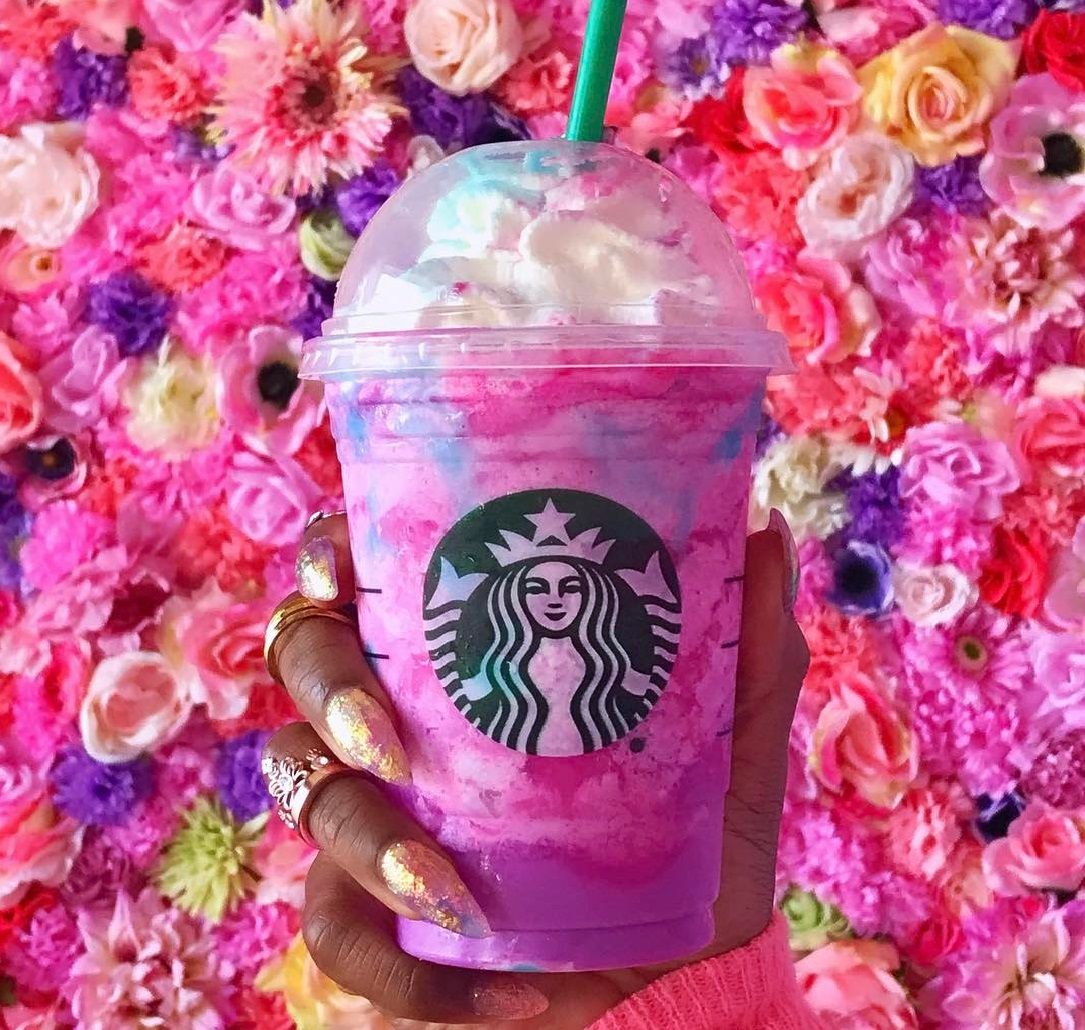
I had no idea what I was getting myself into when I agreed to review Starbucks' latest Frappuccino craze. How could I have? It's called "the Unicorn," which doesn't evoke any particular flavors in a typical human being's palate—unless you eat horse meat, I guess.
I went to my office's nearest Starbucks before 8 a.m. and was shocked to learn the Unicorn was already selling like hotcakes its first day on the market. The colorful, cartoony beverage was plastered on signs throughout the coffee chain establishment reading "the flavor-changing Unicorn Frappuccino!" and "Made with only the finest rainbows!"
Related: The (many) reasons people have sued Starbucks
There's something particularly disconcerting about your everyday coffee shop advertising that one of its beverages is made with "rainbows" instead of informing customers about its truly dangerous ingredients. No, the blended beverage is not created by sprinkling sunshine and sprinkles over the blessed juices of rainbows and unicorns. It's 16 ounces of fat, chemicals and sugar.
More than 400 loaded calories. Fifty-nine grams of sugar. Ten grams of saturated, unadulterated fat (and six other grams from God knows where). Forty-five milligrams of cholesterol. And I was going to drink it all before 8 a.m.
I collected my frothy, vivid drink from the smiling barista, Josh, who I say hello to almost every day. I apologized for making his job more difficult than it already was. "How?," he asked me. "You have to pretend this isn't the worst thing you've ever made," I responded, before heading to the door.
Before I made it out, a young girl about the age of 13 stopped me. "Excuse me?," she said, rapidly glancing back and forth from my eyes to my Unicorn. "Can I take a picture with that?"
I asked her whether she would like to try some of it in a separate cup. "Haha, ew, no!" She giggled, snapping a photo from high above her head to show her hand, adorned with a Michael Kors watch and charm bracelets, holding the drink that wasn't hers. "Thanks!" She walked out with me as I headed to my office. "Are you getting anything for yourself?," I asked. "Nope," she said, scrolling through her phone to Facebook.
Just like that, without ever actually consuming any coffee or beverage, this girl's visit to Starbucks was a satisfying and successful journey. She had alerted the world that she was, in fact, more on trend than her friends and followers, and she didn't even need to spend the whopping five dollars for a cup of sludge that I begrudgingly forked over to Josh.
Little did she understand her post, among countless others, would only prove Starbucks' marketing ploy to be an even greater victory than her double-digit likes on a photo. Influencers snap photos of shiny objects and publish them to social media platforms; followers travel great lengths to get their hands on said shiny object for additional posts; the media then writes "hot takes" on said shiny object until multibillion-dollar industries create a newer version of that shiny object. The vicious cycle continues on and on, with no real focus ever being put on a product's quality or value.
To be clear, this is the worst drink I have ever purchased in my life. That is not an understatement, either: the Starbucks' Unicorn tastes like a combination of the topical fluoride used by dental hygienists and metallic sludge. The coffee chain describes the Frappuccino as having "magical flavors" that "start off sweet and fruity transforming to pleasantly sour." The spectacle is topped off with pink and "blue fairy powders."
It's almost baffling how easily Starbucks can avoid any responsibility for customers experiencing adverse side effects by saying an extremely unhealthy dessert was created by fairies. That blue powder preteens are currently chugging? Maltodextrin, sugar, color, citric acid, spirulina and water. Artificial flavors, sugar, salt and mono diglycerides are among the most-used ingredients in this monstrosity. It's as if the most popular coffee chain in the world was actively trying to harm those customers acting as guinea pigs in its latest lab experiment.
"It's the sugar version of a shot," one colleague said while describing the Unicorn. "This is Pepto Bismol disguised as happiness," said another.
Unicorns do not exist, and neither should this beverage. Thankfully, it's only around until April 23. Try it if you dare—or just do it for the 'gram, if you simply can't resist the temptation of being used by Starbucks as a tool for advertising.
Uncommon Knowledge
Newsweek is committed to challenging conventional wisdom and finding connections in the search for common ground.
Newsweek is committed to challenging conventional wisdom and finding connections in the search for common ground.
About the writer
Chris Riotta is a reporter from New York and is a Master's candidate in Journalism at Columbia University. He has ... Read more
To read how Newsweek uses AI as a newsroom tool, Click here.








